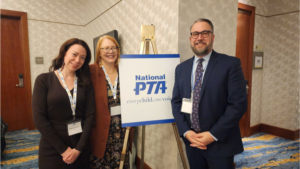September 30, 2014
by: Gari Lister
So — wow! — ATN‘s Educating Traumatized Children Summit kicked off with some blockbuster interviews today! Throughout the Summit, the ATN Blog will bring you some of the insights the nearly two dozen experts being interviewed offer about ways we can work together to help traumatized children learn. Some of our pieces will be short, some will be longer — and we will not cover all the sessions. Even when we do, please be warned, NONE of our posts will be a substitute for the real thing! Here are some highlights from today’s kick-off session:
Dr. Robert Anda: Childhood Adversity – the Nation’s Largest Public Health Crisis
The opening session is an interview of Dr. Robert Anda, the co-founder of the often-cited “ACE Study.”The “Adverse Childhood Experience” study, which included 17,000 HMO patients, is one of the largest studies ever of the impact of childhood trauma. The study’s influence has already been enormous: it has linked childhood trauma to long-term health and social consequences, including everything from depression and addiction to heart disease and even cancer. And it is persuading leaders to take action!
Dr. Anda’s interview focused on the role that schools can play in changing this devastating problem. He argues that schools should actually be considered part of society’s public health system and that they can be a powerful agent of change if they become trauma sensitive. And, yes, he acknowledges that the task of taking on jobs outside of reading and writing may sound awfully scary for our already over-burdened teachers. He argues that trauma sensitive practices may actually make it easier to manage classrooms and even meet education goals. And trauma sensitive schools can catch issues in children early on, which will not only improve the child’s immediate quality of life, it can prevent that laundry list of bad things that happen to children who have experienced adverse events if no one intervenes — depression, addiction, and more.
But here’s a critical point — not just teachers need to understand trauma. Everyone at school — including principals, front office personnel, teacher assistants and even students — need to have a paradigm shift. What is the paradigm shift? We all need to change the way we think about children who have been affected by trauma. These children do not have something wrong with them; instead, something happened to them. Something happened to them, and because of the adversity, they adapted; their behaviors, the way they learn, and even their brains, have changed because of what happened to them. He was speaking of the need for schools to understand this, but I actually think the idea has a broader significance.
As a mom, I don’t generally run around saying something is wrong with my little one — but she is different and I wonder if I sometimes subconsciously think it. After all, just like a mom who told me yesterday that her son “has autism,” I do tend to say she “has developmental trauma.” And I certainly know that it’s all too easy for teachers and therapists and other folks who interact with our kids to fall into the diagnosis trap. But if you think of a child in terms of what has happened to them, it forces you to consider the whole child, not just their current challenging behavior. Truly a mental game-changer, huh?
More information on Dr. Anda”s work is available here.


